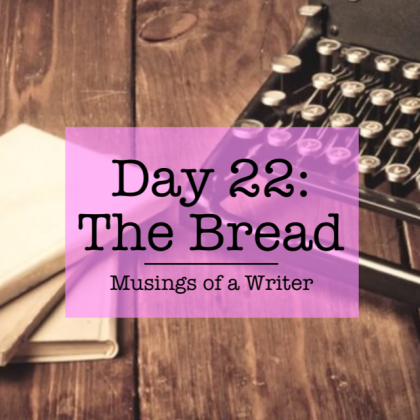“I have been young, and now am old; yet have I not seen the righteous forsaken, nor his seed begging BREAD.” Psalm 37:25
When I think of bread in the Bible, I think of the spiritual food that is the Word of God. In just a few short days, we will be in the middle of the year 2019. Six months will have passed with six more months to go. At the beginning of a New Year, many find themselves making resolutions to read through the Bible that year. I myself have done so before. But, as I grow older, I have come to realize that although the reading of the Bible is a good thing and something that we need to do more often, I feel that we need to take that a step further and actually study the Bible.
II Timothy 2:15 tells us to “STUDY to shew thyself approved unto God, a workman that needeth not to be ashamed, rightly dividing the word of truth.” What does this verse tell us to do? To study, correct? There is a difference between reading and studying. In college, I had a professor for History of Civilization that LOVED to give pop quizzes. If I had not read the required reading for that day, you can imagine the outcome. What if I had only had time to read it? What if I had taken time to actually study it? I guarantee there would be a much more pleasant outcome after studying versus reading!
How much time did you spend yesterday reading God’s Word? What about studying it? We need to not only read God’s Word, my friend, but we need to STUDY it! Most people claim to be Christians yet hardly can find time for church and never pick up their Bible in between times. It is no wonder that we do not grow for we are not eating our spiritual bread that God has provided for us! We cannot grow physically without food and neither can we spiritually!
You do not have to be a college graduate to be able to study and grow from the Bible. Here are a few basic tips from what I do:
· I read and study from a King James Bible with Scofield notes. I use the cross-reference column a lot.
· I have, in the past, used devotional books to give me a scriptural starting point and thought.
· I use an online dictionary to look up words … even ones that I think that I know already, because I have been surprised a time or two! Defining words makes the verse come to life and get more personal for me.
· I use a notebook. I put down the date, the passage of scripture or verse. Any cross-reference verses that I find and any thoughts that God brings to mind.
· I occasionally use the internet to google certain topics or to look up a book in the online commentaries. I also use a Strong’s concordance app.
· If you are looking for an all-in-one type of book to invest in, I suggest Nelson’s three-in-one Bible Reference Companion, which can be found on Amazon inexpensively.
If you are one of the minority who does read and study your Bible daily, what are some things that you find helpful? Do you like to use a devotional book, write in a journal, use commentaries (book form or online) or even type your thoughts out?

